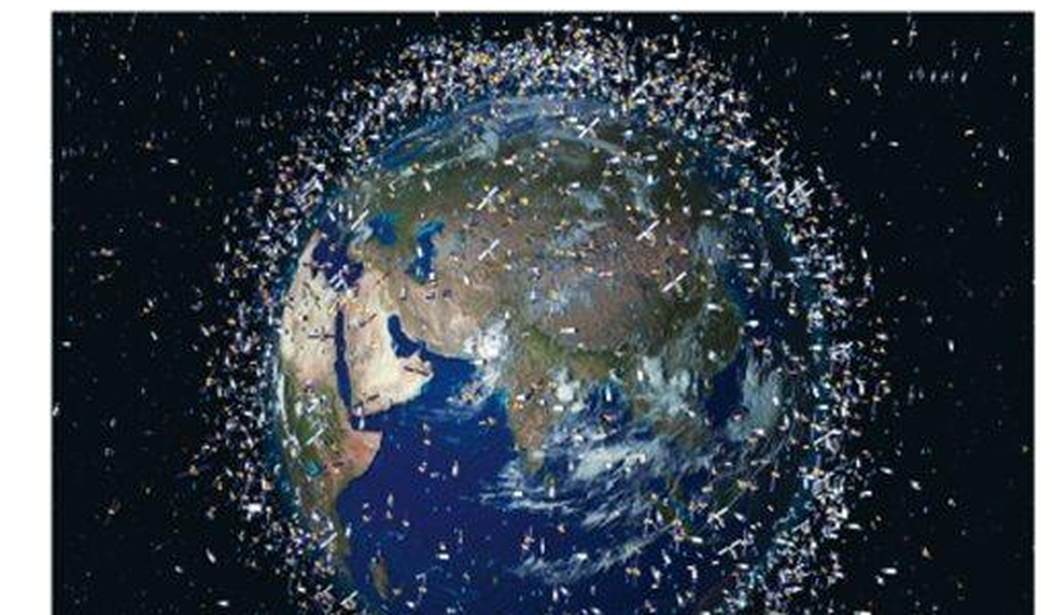We spend a lot of time here covering the ongoing battles between Democrats and Republicans or conservatives and progressives, so what say we look at something totally different? The astronomers and astrophysicists of the world are getting fed up with Elon Musk and a few other commercial enterprises so they’re teaming up to form a new scientific center that will give these billionaires a piece of their mind. The Center for the Protection of the Dark and Quiet Sky from Satellite Constellation Interference (CPDQSSC) was announced on February 2nd. (I’m sure these scientists are 100 times smarter than I’ll ever be, but they really need to work on their acronyms.) They want a solution to all of the clutter in the sky being created by thousands of commercial satellites such as the SpaceX Starlink constellation. What they can legally do about it, assuming there is even a solution, remains to be seen. (Gizmodo)
A new center established by the International Astronomical Union is seeking to protect the interests of astronomers as the number of satellites in Earth orbit continues to climb.
The Center for the Protection of the Dark and Quiet Sky from Satellite Constellation Interference, announced February 2, will be hosted by the National Optical-Infrared Astronomy Research Laboratory (NOIRLab) and the Square Kilometre Array Organization (SKAO). NOIRLab will concern itself with optical astronomy, while SKAO will look into issues related to radio astronomy.
“The new Centre is an important step towards ensuring that technological advances do not inadvertently impede our study and enjoyment of the sky,” Debra Elmegreen, the president of IAU, said in a statement. “I am confident that the Centre co-hosts can facilitate global coordination and bring together the necessary expertise from many sectors for this vital effort.”
Space “clutter” in Earth’s orbit may not seem like all that big of a deal to the layman. The reason for this is that space is really big (as we learned from Douglas Adams) and satellites are comparatively tiny. When you go outside at night and look at the night sky, you’ll only rarely notice anything manmade. And even if you do happen to catch sight of Elon Musk’s trains of wifi satellites going by, it’s a pretty impressive spectacle.
But it’s not impressive to the scientists operating the many visual and radio telescopes around the world. They frequently need to collect very long exposure images of deep space covering hours of time. And increasingly in recent years, those images come back with long, white streaks etched across them as a parade of satellites goes by, reflecting the sun’s light down to earth. This ruins their measurements, so they want to work to find a way to put an end to this.
There have been some solutions proposed, including by Musk himself. He’s looked at painting the satellites some darker, less reflective color, but that creates issues for the solar “wings” that generate the satellites’ power. Also, there are already more than 2,000 shiny satellites up there and Musk can’t just bring them back down or repaint them on station (yet). They’re going to be up there for a very long time before they deorbit on their own. Perhaps between all of the geniuses involved in this debate, they’ll come up with a solution though.
Of course, if Musk doesn’t want to cooperate, there may not be much anyone can do about it. Despite some efforts by the United Nations to try to establish some sort of “space law,” nobody really “owns” outer space. If you’ve got the money and the technology to put something into orbit, you can pretty much just do it, providing you get the all-clear from the FAA and whoever else needs to be informed to ensure you aren’t creating a flight hazard with your launch.
The large number of working satellites in orbit certainly isn’t our biggest problem, by the way. There are tens of thousands of dead satellites, spent rocket boosters, and other assorted human castoffs up there and it’s becoming more difficult to avoid crashing into them. It’s what’s coming to be known as the “junkyard in space.” And just last month, Joe Biden’s White House began looking at a plan to start cleaning this mess up.
In January, the White House held a meeting with experts about how to clean up space. The Space Force is launching a program called Orbital Prime that will give companies the seed funding to do it.
Space debris is both an environmental concern and a national security risk that could jeopardize GPS and satellites that is only getting worse now that private space companies are also sending their own satellites and rockets into Earth’s orbit.
Space Force is currently tracking more than 40,000 objects large enough to be of concern. That’s a lot of housekeeping to take care of. Maybe they should check in with Elon Musk and ask if he’d like to help.








Join the conversation as a VIP Member